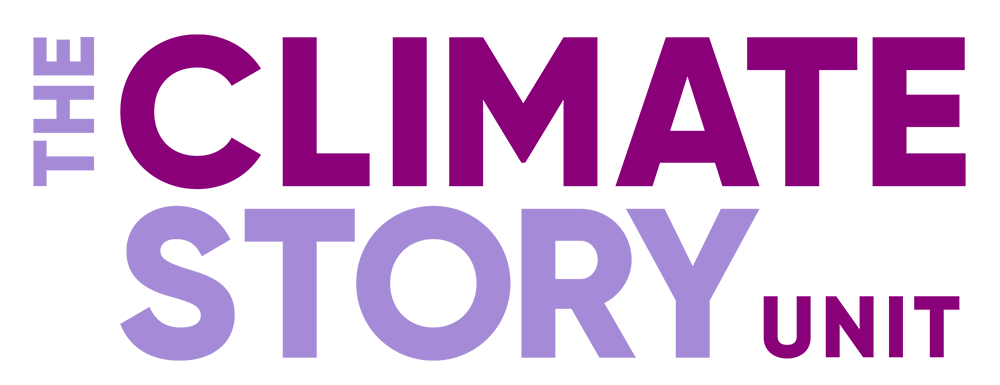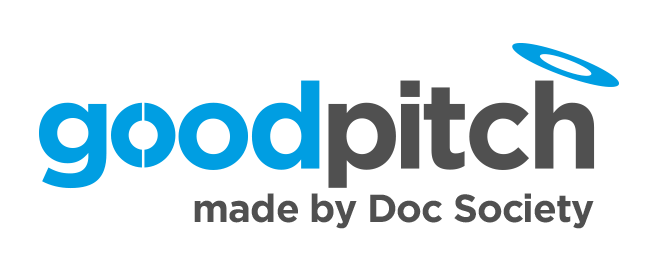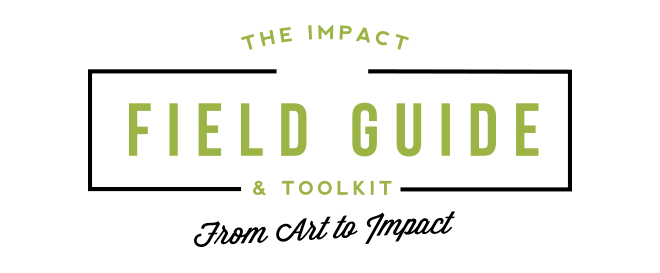Towards the independent and democratic future we all need and deserve
March 11, 2024
@International Film Festival On Human Rights Geneva, Switzerland

As filmmakers, organisations and funders committed to storytelling in the pursuit of a more equal and just world for all, it is time to examine our role in relation to this era of polycrisis. We will need to unlock collective imagination if we are to remake an independent information ecosystem that works in society’s interests and reconfigure how media in the public interest can help revitalize public engagement and restore the trust of citizens.
The following keynote from Doc Society Sandra Whipham, delivered at the International Film Festival On Human Rights in March 2024, reflects on the techtonic pressures on the field and pathways to better futures.
Good morning everyone. It’s really great to be here to talk about what’s on our mind at Doc Society. Thank you so much for the invitation and to everyone at Impact Days especially Laura Longobardi, and Ana Castanosa, for inviting me to be part of your conversation today.
My name is Sandra Whipham, and I’m one of the 5 co-directors at Doc Society, a not for profit organisation which supports and enables independent documentary filmmakers globally.
With offices in New York, Amsterdam and London and a global team based in North and South America, Africa, Europe and the UK, we’ve had the unique privilege to work with an extraordinary cohort of independent artists and storytellers over the last 19 years. We’ve learnt a lot over that time and right now we find ourselves at an inflection point. Right at the same time as the world around us also reaches many tipping points. What I’d like to share with you today is what’s currently on our minds at Doc Society, where we find ourselves, as democracies, and in our documentary field, and some provocations about what all of our roles might be in this time of polycrisis. I also have some questions. Doc Society is in a period of reflection and enquiry and I am inviting you to come on this journey with us.
Firstly, what is abundantly clear to us now - is that we are not living in a golden age of documentary. Let’s be honest that has never felt particularly accurate to us, the community of independent filmmakers.
The independent work that Doc Society has championed for the last 19 years - the patient, observant, long view made from the margins by artists who are editorially independent of political and commercial institutions, was for a while in favour. It offered the commercial value chain of the streaming and film industry cachet, awards, good work brownie points and a counterweight to the overwhelming majority of their content. This bubble was always too good to be true, and when the market did what the market always does, we were left feeling dumped.
As ever the independent documentary filmmakers are at the pointy end of a lot of other industry trends. Right now, the film and TV industry finds itself in a state of paralysis, across every single genre…… and no one is talking about it.
A lack of creative bravery, a fear of and a capture by the market, the system of commissioning by algorithm and making work by committee is bringing the whole system - not just our corner of it - to a halt, and is also, crucially, infecting the public service broadcasting system.
Part of what we’ve been doing at Doc Society over the last few months, as we launch our new project, the Democracy Story Unit, is taking the 10,000 foot view, which I’d like to share with you. In the film and television industry, we don’t often ask, what is our role in this picture and could it be different? Instead we tend to be fixated on what the markets are signalling or the prevailing political winds in our own national territories. In doing so we are missing the big picture.
What follows comes with a bit of a health warning as it’s quite depressing, but stick with me…...
So what else is happening, that is squeezing the space for independent voices and the issues we all care so deeply about?
10,000 Foot View
As all of us in this room are painfully aware, around the world, we are facing a series of interconnected existential challenges, from climate change to the rise of AI-fuelled mis/disinformation, from the unprecedented movement of people across borders impacting people’s access to basic resources, to growing inequality and widespread job insecurity. Many citizens believe democracy to have failed to offer meaningful adjustments to their lives, and are inclined to support more authoritarian rule. Public trust in democracy as a form of governance is waning across the world with 42% of 18-35 year olds surveyed in a recent OSF report favouring military rule.[SLIDE]
Our ability to face these huge challenges and engage citizens in decisions about the future of our societies is harmed by the increasingly polluted information ecosystem we find ourselves in.
Unchecked and unregulated platforms are promoting narratives from a mix of authoritarian regimes, major corporations and special interest groups, actively spreading disinformation to further their own ends. The consequences are tangible, with communities polarising into mutually exclusive information and opinion spheres.
In January, a study went viral which showed that a wide ideology gap is opening up between young men and women across the world, with men becoming more conservative, and women becoming more progressive, which has terrifying implications for social cohesion, and more. [SLIDE GILEAD] And don’t get me started on the terrifying online architecture of the “Manosphere”....
Tom Brookes, Executive Director at Global Strategic Communications Council (GSCC) reflected at our Democracy Story Lab in December:
‘[H]ow we think about information ecosystems in the 21st century will be decisive in terms of the outcomes that we see, not just on climate, but on every social issue around immigration, around human rights, women’s rights, around identity. All of these issues will be shaped by society’s ability to have a conversation. [T]hat space is where society thinks, and if it is completely polluted by specific angles and driven towards the extremes, society becomes incapable of collective thought. And therefore, it becomes incapable of collective outcomes at a time when we need them more than we ever have.’
And philanthropy has also failed to understand that the health of the information ecosystem underpins every single issue that they care deeply about. At our recent Democracy Story Lab in London, we heard the consistent concern that if the information ecosystem is not improved then democracy as we know it, as well as hopes for reimagined democracy, will not survive.
As we are learning at our labs, the far right is highly organised and networked across borders, tests messages incessantly, and uses every single platform and strategy available to get its narratives across. As we can see, they are achieving cut through.
But let’s go back to the film and tv industry for a minute, because what is happening here is worth understanding in more detail.
Streamers
We are in the era of peak streaming - thousands of shows and films are available with billions being invested by Hollywood Studios and streaming platforms on new offerings. For example, by 2022, there were more than 817,000 unique program titles across traditional TV and streaming services in the U.S, up 26% from 2019. In 2021 Netflix earned over $25billion in annual revenues.
But as Keri Puttnam noted in her report for the Shorensten Centre, “What’s At Risk in the Media Streaming Age: “with these kinds of volumes, it was easy to lose sight of what was no longer available. Today just ‘Six major companies capture 80% of our subscription streaming time and analysts expect further consolidation in the coming year. In 2023 these studio/streamers narrowed their mandates to focus on mass-appeal hits that will attract and retain the widest possible audience while avoiding risk or controversy. Following the playbook set by the large social media companies, they prioritise the most sensational, comforting or addictive content while mining audience data to push algorithmic recommendations that reinforce existing preferences.. This is good business for the streamers. But it also contributes to sensationalism, polarization and a narrowing of curiosity.’
Filmmakers affirm the trend - the streamers want true crime, celebrity helmed projects, music biopics. With rare exceptions, no politics, social justice or human rights. And to make sure that nothing awkward happens, production is being taken in-house where there can be financial and editorial control. But not only have the streamers narrowed their appetites for creative or politically sensitive content but they are also vanishing titles from the library which no longer fit the brand. This is serious when we think of over a decade of work which was sold to the streamers in all rights deals, which could have disappeared from public view because it no longer suits.
Governments have had no meaningful response to Big Tech’s advance. They both failed to regulate, but also have done little to support media in the public interest in that time or journalism.
So let’s talk about public interest media.
Historically the story-to-audience pipeline provided by free to air, publicly owned multi-platform media organisations has been one of the most reliable ways of informing and engaging mass audiences.
However, what we used to think of as the broadly ‘reliable’ and dominant sources of media in the public interest - film, television, radio, print and digital journalism - have had their funding models upended and public service broadcasters and journalists are defunded attacked in every kind of political context, from democracies in name only like Hungary and India, to western liberal democracies such as the UK and the US, and even in the Nordic countries. In many populous countries, for example, Brazil, there is no public media system, with all media controlled by a small number of families.
This market compression and political pressure has resulted in PSM’s copying and competing with the streamers, commissioning by default in service to the algorithm. If current trends continue it is not unreasonable to ponder whether we will even have a public service media system fit for purpose in a few years time.
Let us also not forget that this overview of the film and TV industry is a the view from the Global North; for filmmakers in the Global Majority, as Fara Fayed from Aflamuna says, “work is made, but is nowhere to be found”…. Present company excluded of course!
It is also here that we can find some of the answers.
Doc Society
It is in this context that Doc Society has established its newest project, the Democracy Story Unit, as we consider that we are collectively at an existential inflection point. We can all feel it, can’t we?
It’s pretty clear to us that this new unit will have to bring together all the threads of Doc Society’s historic and current work and concerns about which Jess wrote so eloquently in her Love and Rockets newsletter last Summer [SLIDE]; our funding of climate narratives and impact through the Climate Story Unit, all our thinking on distribution, and our work with the DISCO Network on defining the meaning and value of independence.
This is why we are thinking about not just our corner, but obsessively communicating the 10,000 foot view, even as we double down on supporting the work and impact of our community of independent storytellers.
We have the answers
So, that was a bit depressing wasn’t it! Let’s get onto the good news:) We already have the answers to a lot of the above.
Much of the pioneering thinking and work in this sector comes from the DISCO Network, a global network of cultural organisations of which Doc Society is a member, representing the global majority independent doc makers and audience. [SLIDE]
What’s clear is that something is breaking and we need to build something new. If the system needs to be re-imagined and rebooted, this time we build for everyone. Perhaps in the midst of this corporate, economic, political, climate polycrisis comes an opportunity to collectively imagine a decentralised, decolonised system for the funding and distribution of independent media.
Currently, almost all funding for independent film made anywhere in the world, is controlled by a few global north cultural organisations and their foundation sponsors plus the co-production investments from a handful of US and Northern European broadcasters. We need to imagine a new global pooled fund where resources are shared equitably to every region, where local experts can make decisions about what and where to spend.
Funding this work at scale, funding the distribution and impact strategies we know are effective is the answer to the nightmare of AI generated content, creative conformity, and political retreat we find ourselves in. There is an existing mycelium network for community distribution of film in many regions, with trusted projects and vibrant networks that are ready to be funded. We believe this should be the first priority for immediate funding as both a potential antidote to polarisation and as a means to keep the distribution pipelines open for the most important narratives in a given region.
As well as interventions that could help shore up existing infrastructure and funding existing projects that are working, we also need to be bold about worldbuilding for the future. This year will be the year for magical thinking with our partners and allies and we look forward to talking to you here and at other events over the coming months.
Here’s one idea…..
How about we start having public, creative conversations about the imagining and design of a brand new global public interest media tech platform which is fit for the particular challenges of the 21st century. One that upholds the principle of being free to all citizens anywhere, with the ability to evade national censorship. With a new ownership model by citizens for citizens which allows for new funding experiments that liberates the project from market pressures. Most profoundly, underpinning the mechanics of such a platform with very different kinds of algorithms that do not repeat the same polarising patterns of behaviour.
We also need to think seriously about our role in supporting public interest media [SLIDE ITVS?] and building alliances around tech regulation.
As Doc Society prepares for its twentieth anniversary next year, and looks back at the hundreds of documentary filmmakers we have supported, we can’t help coming to the conclusion that it has always been a golden age of documentary. All of the storytellers we have worked with have demonstrated vision, tenacity and inventiveness in making their films and getting them to audiences, even as the public service media system and commercial broadcasters have equivocated over the value and importance of this work.
Finally, a word on Independence , which is at the heart of our democracy work and has been baked into our mission since we were founded in 2005. Despite this, we realised that many in our sector, our allies in film and television as well as civil society, didn’t understand what it really meant and its true value. This is why DISCO is working on a technical definition of “independence” as well as a values based framework that we can all share, which can be applied to independent work and recognised and valued as such.
This work, of independent storytelling and worldbuilding, takes commitment and partnership and we will all need all our love and rockets - our ideas, hope and joy - for the long road ahead. We do have all of this in abundance, and for that, as Jess would say, we are truly lucky fuckers.
Please join us in the conversation this year - Doc Society looks forward to talking to you.








